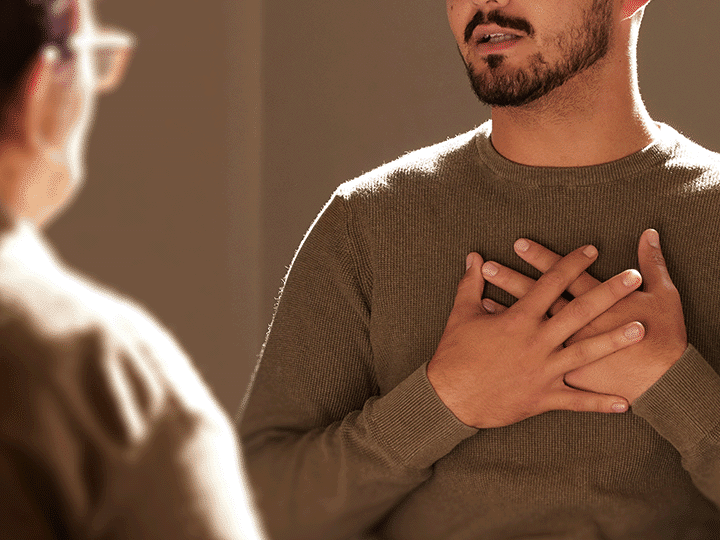Ecstasy and alcohol are two very different substances. One is a stimulant, the other a depressant. One is a liquid, the other a pill. One is legal, the other illegal. To some drug users, combining them seems smart. In reality, it’s very dangerous.
Ecstasy (also known as MDMA or Molly) is an illegal drug more than 18 million Americans have tried at least once. Years ago, most of these people bought and used the drug during all-day dance parties or festivals. The risks of mixing drugs and alcohol on hot dance floors were well known and included severe dehydration.
Now, many Molly users take the drugs far from hot spaces. They may believe mixing is safer since they’re not dancing the night away and neglecting their bodies. But experts say mixing in any context — including at home — can lead to severe organ damage and mental health issues.


Find the Best Alcohol Detox Near You
Why Do People Mix Ecstasy With Alcohol?
Researchers say most people start experimenting with MDMA at age 21 — when they can legally buy alcohol in most states. Savvy drug users may know that mixing similar substances (like two sedatives) is dangerous, but they may believe blending MDMA with alcohol is safe because they are so different.
MDMA’s stimulant properties mask some of alcohol’s intoxicating impact. Where someone drinking several shots may feel blurry and slow, that same person may feel more alert while also using MDMA.
People who can’t feel their intoxication tend to drink more, adding stress to organs that must digest and process alcohol. And while people may feel more alert, they may not have quicker reaction times.
Some people who are mixing ecstasy and alcohol feel alert enough to drive, although they’re far from sober. They have a higher risk of harming themselves or others, simply because they can’t judge how intoxicated they really are. This combination of confidence and intoxication can be incredibly harmful.
How Can Mixing Hurt Your Body?
While people who mix may feel they’re making a smart choice, even one episode of combining alcohol and ecstasy can come with serious consequences.
MDMA can cause the following health problems:
Fast heart rate
Heart damage
High blood pressure
Kidney damage
Adding alcohol means putting even more pressure on these damaged organs, worsening the potential for health problems.
Researchers say mixing alcohol and drugs like MDMA can lead to the following problems:
High blood pressure
Faster heart rate
Higher cancer risk
Dehydration causes some of these problems. MDMA worsens kidney function, which the body needs to regulate water levels. And people who drink alcohol have higher dehydration risks, putting yet more pressure on the kidneys and other critical organs.
Additionally, some of the substances sold as ecstasy contain other drugs, such as the following:
Amphetamine
Ketamine
PMA
These substances interact with alcohol in unpredictable ways, making the health consequences hard to predict or control.
How Mixing Substances Affects Your Mental Health
Alcohol and MDMA can improve your mood in the short term, but heavy use over a long period can lead to serious issues.
MDMA works by flooding your brain with the neurotransmitter serotonin. When your body releases more than it can produce, a deficit leads to the following problems:
Confusion
Depression
Anxiety
Paranoia
Memory problems
Inability to concentrate
Alcohol is a depressant, capable of inducing profound depression while you’re drinking and rebound anxiety when you’re sober. Adding alcohol to a body that is already dealing with mental health challenges can lead to a worsening of your emotional state.
Poor mental health can lower your chances of achieving sobriety. You may relapse to drinking or drugs to make yourself feel better. But each dose you take makes your underlying mental health worse. This is a damaging cycle that results in a deepening addiction.
Treatment programs can help you stop using drugs and alcohol for good. If you’re struggling to quit, talk with your doctor about whether or not these programs are right for you.
- MDMA (Ecstasy) Abuse Research Report. (September 2019). National Institute on Drug Abuse.
- Who Is Using MDMA? (September 2017). National Institute on Drug Abuse.
- Commonly Used Drugs Charts. (August 2020). National Institute on Drug Abuse.
- Effects of Alcohol (BAC 0.5‰) and Ecstasy (MDMA 100 mg) on Simulated Driving Performance and Traffic Safety. (November 2012). Psychopharmacology.
- Alcohol Interactions With Psychostimulants: An Overview of Animal and Human Studies. (June 2016). Journal of Addiction Research and Therapy.
- The Complicated Relationship Between MDMA and Water. (November 2021). High Alert.
- MDMA. (January 2023). Alcohol and Drug Foundation.
- Hard Boiled: Alcohol Use as a Risk Factor for MDMA-Induced Hyperthermia: a Systematic Review. (September 2021). Neurotoxicity Research.
- What Are MDMA's Effects on the Brain? (September 2017). National Institute on Drug Abuse.
- Binge Ethanol and MDMA Combination Exacerbates Toxic Cardiac Effects by Inducing Cellular Stress. (October 2015). PLOS ONE.














